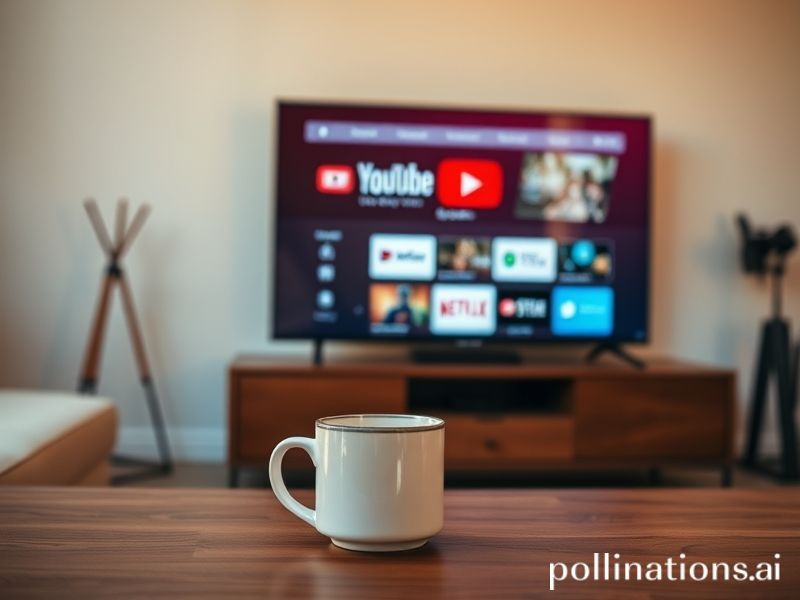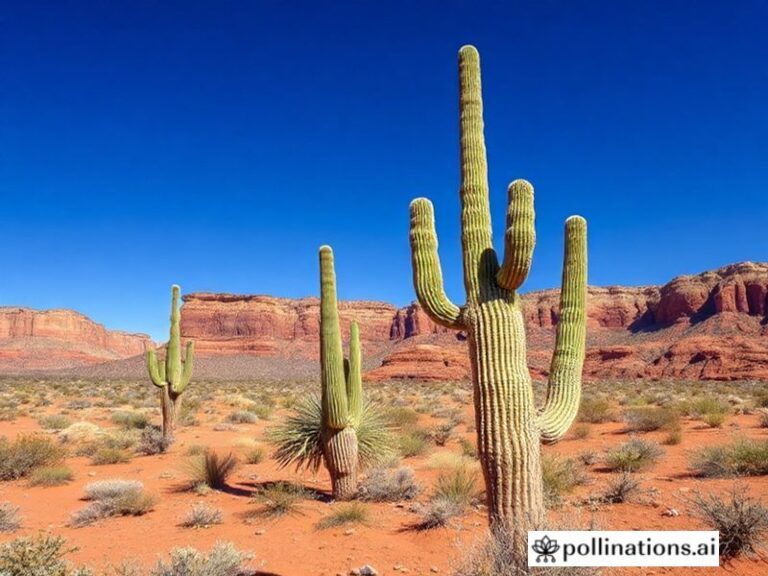Buffering Borders: How YouTube TV Accidentally Became a Geopolitical Superpower
YouTube TV: The Cloud That Rains Channels on a Burning Planet
By Our Man in Geneva, Still Counting Subscriptions Instead of Sheep
Geneva, 3 a.m.—while the rest of the city pretends to sleep, the Palais des Nations flickers with a different kind of diplomacy: a delegate from Fiji is haggling over the precise definition of “live sports blackout.” He’s not in the UN chamber, of course; he’s on a cracked iPad in the cafeteria, trying to cancel YouTube TV before the free trial converts to thirty-five Swiss francs he definitely doesn’t have. Somewhere in Mountain View, an algorithm flags his account for “suspicious cancellation velocity” and offers him three more months at half price. International relations have never been so personalized.
Welcome to YouTube TV, Google’s polite little land grab in the global cable wars. Launched in 2017 as a hedge against cord-cutting, the service now beams eighty-five-plus channels to five million-odd subscribers—roughly the population of Finland, if Finland watched an unhealthy amount of American football. The platform’s footprint remains stubbornly U.S.-centric, yet its implications ripple outward like spilled espresso on a mahogany desk at the IMF. After all, nothing says “soft power” quite like exporting The Real Housewives of Atlanta to countries that still think “Bravo” is an exclamation.
The business model is elegantly vicious: replace the coaxial cable with Wi-Fi, jack the price up every eighteen months, and re-sell the same content networks were giving away in 1995. In exchange, consumers receive the modern miracle of watching CNN buffer during a coup. Abroad, this is marketed—via VPN grey markets and expatriate Telegram channels—as “freedom from local monopolies.” Which is true in the same way that jumping from a tenth-story window frees you from rent control.
Consider Nigeria, where fiber rollout is uneven but hope springs eternal. A Lagos start-up recently began bundling YouTube TV logins with rooftop solar leases: catch the Premier League in 4K while your battery lasts longer than the national grid. The venture capitalist behind it—Stanford, two exits, spiritually allergic to daylight—calls it “leapfrogging legacy infrastructure.” Critics call it “trickle-down buffering.” Both are correct, which is why the Series B closed in forty-eight hours.
Across Southeast Asia, regulators watch with the weary suspicion of parents who’ve seen this movie before. Every time an American platform “temporarily” geo-blocks content, local ministries of culture rehearse the same speech about cultural sovereignty. Then they remember last quarter’s tourism numbers and quietly add another line item for “digital cooperation.” The result: YouTube TV remains officially unavailable, unofficially ubiquitous, and morally ambiguous—rather like the arms trade, but with better theme music.
Europe, ever the continent that discovered ethics just in time to lecture everyone else, has responded with the Digital Services Act, a 10,000-page pillow fight designed to make Google say “ouch” in twenty-four languages. Enforcement is entrusted to national bodies whose budgets could barely bribe a mid-tier TikTok influencer. Still, the symbolism matters: Brussels believes that if you regulate aggressively enough, Silicon Valley will eventually develop a conscience. Silicon Valley believes Brussels will eventually develop better Wi-Fi. Both sides are patient.
Meanwhile, the content itself grows stranger under the pressure of global eyeballs. Last month, a Kansas City weather channel accidentally became the highest-rated program in Sri Lanka after a monsoon-themed super-chat trended on Reddit. Anchorman Dave debuted a Sinhala catchphrase he neither speaks nor understands—something about barometric pressure and destiny—and merchandise sales tripled. Somewhere, Marshall McLuhan is lighting a cigarette in his grave.
Conclusion: YouTube TV is less a television service than a geopolitical mood ring. It tells us that borders are porous, attention is the new oil, and nobody—not the UN delegate, not the Lagos solar bro, not even Dave the weatherman—can quite believe the feed hasn’t crashed yet. The world keeps burning, literally and figuratively, but at least we can watch it in 1080p with unlimited DVR. Comfort has always been a lousy substitute for justice, yet here we are, renewing another month because the alternative is talking to our families. Press any button to continue.







